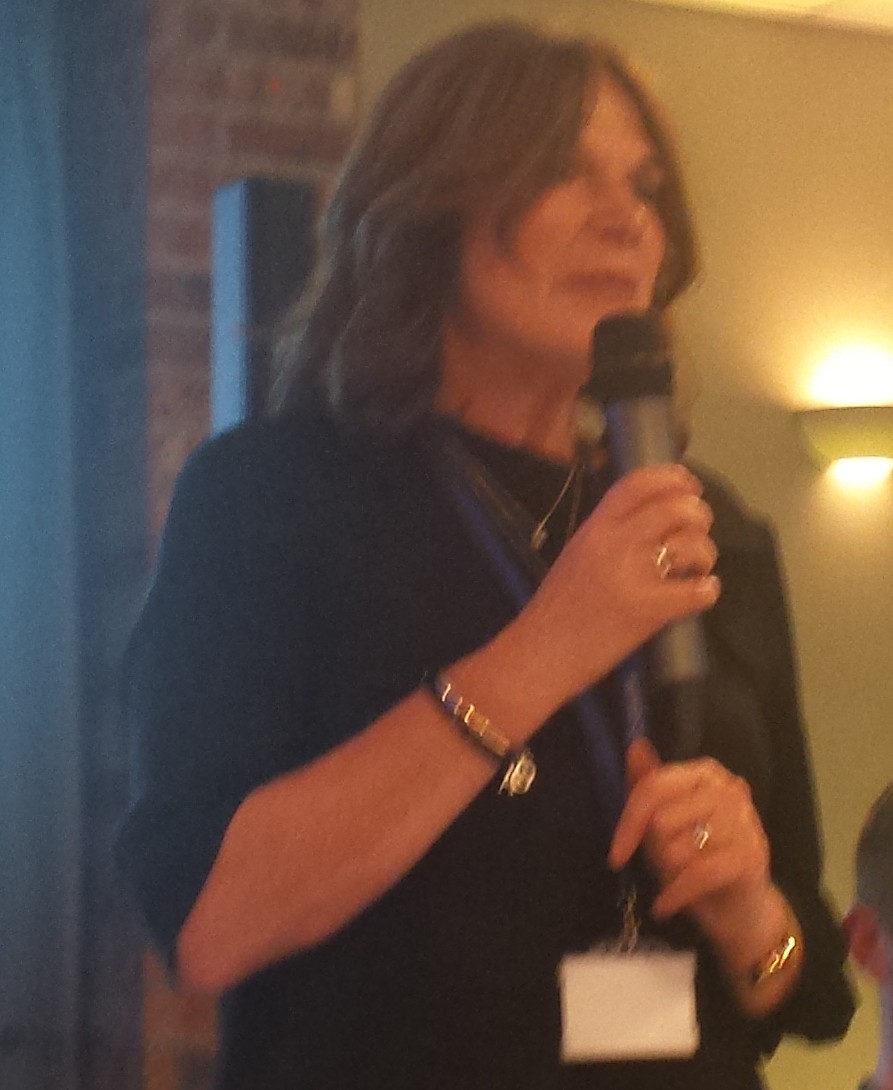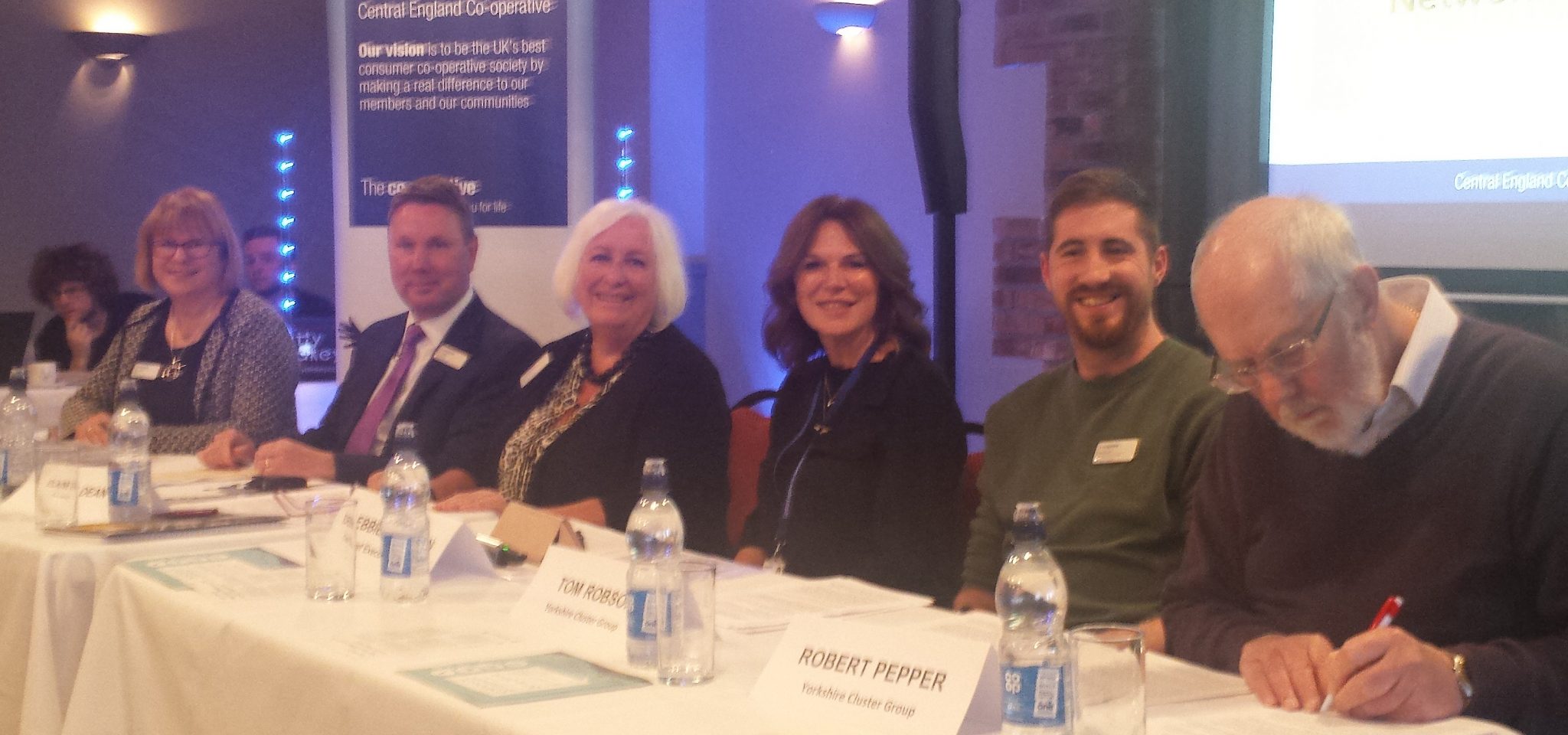As retail co-ops continue to grow, the question of how to engage with an expanding membership is a pressing one.
One response is to hold grassroots meetings to give local members the chance to meet senior board members and executives.
For instance, Central England Co-operative – a retail society with over 400 trading outlets, around 8,600 colleagues and more than 330,000 regular trading members – has been hosting events around its trading area, and last week went out to Holmfirth, in West Yorkshire, where it has taken on the stores operated by the Wooldale Co-operative.
The event allowed the society to present its annual results, explain its co-operative values, its role in its communities and its work with other co-op organisations.
Newly appointed chief executive Debbie Robinson discussed the co-op’s work on Fairtrade, and said she had previously been in charge of Fairtrade buying at the Co-op Group.
“Members of the public are looking for something to believe in,” she said, pointing to the co-op model as offering an alternative way forward.
She said she had toured the society’s Holmfirth stores and found them “in good shape – the staff are exceptional”.
There was room to improve on systems and processes, and to invest in tech to reach a younger audience. “We want to identify opportunities in Holmfirth to thrive, prosper and grow into the future,” she added.

Society secretary Jim Watts and president Elaine Dean highlighted the money returned to the colleagues, members and the community by Central England – a total of £3.5m last year, or 8% of the society’s surplus.
“This money stays in system,” said Mr Watts. “It doesn’t go to shareholders in the City of London, it goes to our members and communities.”
Ms Dean added: “This demonstrates our commitment as a society to our members, colleagues and communities.
“When we ask people to stay loyal … the money that we make on that will go back into community work.”
In terms of engaging those members, Mr Watts said 2,900 had voted in the recent society elections, “which is OK but I think it should be higher”.
One member said there was confusion about the retail co-op movement, with shared signage between societies and common stockage of CRTG products, and asked how Central England could communicate its difference from the Co-op Group.
Ms Robinson said: “I think there is an opportunity around the communities we serve. Being part of a big buying group allows us to stay competitive, but we can sell more of the products that are made by local projects we support. There is room to emphasise points of difference not just with Co-op Group but also other multiples.”

The other strand to engagement is community involvement. Central England backs the Yorkshire Cluster of local groups, stretching from Barnsley to Huddersfield with support for senior school masterclasses. The Yorkshire Cluster has been involved with Mayday celebrations on Shepley village green, Southgate Theatre, and plastics workshops by Fairandfunky – a community interest company created to promote sustainability.
With rural food poverty a problem in the area – 13% of children in the Kirklees district are on free school meals – Central England works with Fairshare, the UK’s largest UK surplus food redistributor, and gives away enough food each year for around 4,000 meals.
Discussing the work of Fairandfunky, Helen Robinson said the organisation wanted to “empower young people to help them change the world”, running a campaign, Scrap that Plastic!, with local schools.
“Often we don’t think about where our food has come from and where things go when we finish with them,” she said. “Scrap that Plastic! is about that waste.”
She added: “It’s cheaper to make plastic from oil that it is to make it from old plastic; only 10% is recycled, there’s too much to cope with. We all need to change our behaviour.”
The UK now sends its waste plastic to Vietnam and the Philippines; where it seeps into groundwater; instead, Fairandfunky uses it to make artwork and crafts.
There was also a presentation on Wooldale allotments, created after the store in the village decided to open up land to the community with the support of Central England. The allotments are a community hub as well as a garden facility, hosting events such as scarecrow parties and strawberry parties.
And the event hosted a reading from Shepley Creative Writing Group and entertainment from Valley Beats Drummers, two other groups supported by the society.
Simon Parkinson, chief executive and principal of the Co-operative College, also spoke at the event, and said there was a growing role for co-ops in “fragmented communities” where “people are looking for a different approach”.
He believes adult education was important “to inspire the individual and create a community at large”, adding: “There’s been massive funding cuts, adult education is under pressure.
“But people want change and it’s not just about the government throwing money at things – it’s about what we want and the power we have as communities. It is about people.”